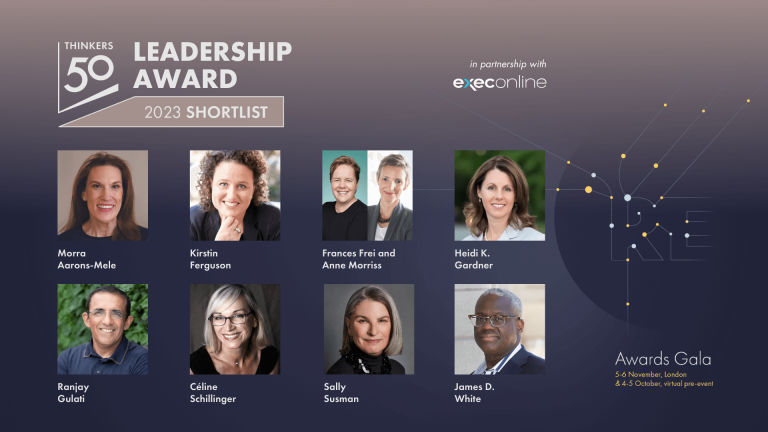

By Stuart Crainer and Des Dearlove
For Nelson Mandela it was Robben Island. For John McCain it was Vietnam. There is a point in the lives of leaders, a moment when the leader makes the grade, when they leap from management to leadership, from team member to leader. For the leadership theorist Warren Bennis that moment came when he was the youngest infantry officer in the European theater of operations during World War II. This experience was what Bennis later labeled a ‘crucible’ – ‘a transformative experience though which an individual comes to a new or an altered sense of identity’.
An adviser to four US presidents and perhaps the first modern leadership guru, Bennis was white-toothed, perma-tanned, California-based. He looked like a leader. Ironically perhaps, his actual experience of leading an organization aside from in wartime was disappointing. Bennis recounted a feeling of powerlessness as head of an academic institution. He looked out of his well-appointed leader’s office and watched the gardener mowing the lawn and envied him his apparent independence and power. Undaunted, Bennis returned to the academic fray to make better sense of leadership.
His research explored how the crucible experience was instrumental in shaping leadership qualities. ‘We found that something magical happens in the crucible – an alchemy whereby fear and suffering are transformed into something glorious and redemptive. This process reveals, if it does not create, leadership, the ability to inspire and move others to action’.
Whether fighting in a war, or overcoming a disaster, or some significant event in their life, good or bad, leaders are able to construct a narrative around it, about the challenge, how they dealt with it, learnt and became better leaders as a result.
Of course, all this begs the question is it possible to create your own crucible? Vietnams of the mind. Most of us, thankfully, spend our lives outside war zones and prison walls.
Bennis believed it was possible to forge our own formative leadership experiences. ‘I think they are created all the time,’ he said:
We all experience crucibles but what do we do at the back end of them? Do we learn from them? Do we extract wisdom from them? I have been puzzling about how do we create within our institutions the capacity to understand what goes on when organizations or individuals face crucibles. It isn’t a question of how do we create them; they happen and happen almost all the time. Do we think of them as a dream so that when we wake up and brush our teeth it vaporizes or do we think about the dream and learn from that? It is the same thing about the rucibles. Having to fire people, being fired, being shipped to an office you don’t like, thinking that you have been demoted when maybe you haven’t. It’s a matter of how organizations can use the crucibles of everyday life and extract wisdom from them to make organizations organically learn from the experiences they’re undergoing. My concern is how do we use everyday crucibles which we’re not sometimes conscious of.
The availability of crucibles was brought home to us talking with the CEO of Vodafone, Vittorio Colao. We asked how far his career was planned and the crucial events that had shaped it. ‘A manager’s career is so dependent on circumstances. I’ve never planned my life too much. I’m full of interests, personal and professional. I believe that life evolves and that you have to adjust. Career plan? No, I don’t think that way,’ said Colao:
I always say when I speak to students that there have been three defining experiences in my life. One has been, believe it or not, the military – and, most importantly, military school. When I was in the mountain troops, I did things that I couldn’t suspect I had the energy for; and I realized that people have almost unlimited energy and unlimited possibilities. We just need to believe in the future.
The second key time in my life was at McKinsey, where I learned the power of honest, thorough, clinical analysis of facts, as opposed to words and perceptions. McKinsey believes in giving clients the truth even if they don’t want to hear it. McKinsey’s power of going below the surface, getting down to root causes, makes an impact. One of the things they always did at McKinsey, when faced with a new assignment, was – instead of analyzing the annual report and so forth – to talk to customers and suppliers of the client. They will always tell you so much more about the company than you could read in its annual report.
For Colao the third defining experience – his crucible – came with his experience at Vodafone Italy, which was then called Omnitel ProntoItalia:
It was incredibly entrepreneurial and incredibly about the power of creating something totally and in the right way. When people are asked to lead companies that have been in existence for a long time, they find that they have legacies to manage, which can be limiting. By contrast, at Vodafone Italy, I found how exciting it can be to join with others in that type of entrepreneurial environment, seeing people working and doing things that they would not believe that they could, just because of the enthusiasm of the vision and set up.
Talking to other leaders, similar crucibles were described. Interestingly, many leaders remember sales jobs early in their working lives. For example, Chris Rodrigues, then CEO of Visa, told a formative story about selling dog food from the back of a car in London.
Sir Peter Lampl, founder of the Sutton Trust, shared the starting points of his career:
‘I read chemistry at Oxford, then I got a job at Beechams in marketing, which was a good thing to do because brand management was hot. I left Oxford, went on holiday and started working in September. I went straight on a sales training course with Beechams to sell pharmaceuticals. I did that for six weeks and then they put me out on the road as a salesman, selling to GPs [general practitioners] and hospital doctors. You’re treated like a subhuman. But it was great experience’.
They may not have been going into war, but talking to these leaders it was clear these were the experiences which had made them into the leaders they now are; career crucibles out of which they emerged as leaders.
Warren Bennis’ later intellectual flowering included On Becoming A Leader (Perseus Books, 1989) and (with Robert Thomas), ‘Crucibles of leadership’ (Harvard Business Review, September 2002).
Our interviews with Vittorio Colao and Sir Peter Lampl were published in Business Strategy Review (www.london.edu).

Thinkers50 Limited
The Studio
Highfield Lane
Wargrave RG10 8PZ
United Kingdom

Thinkers50 Limited
The Studio
Highfield Lane
Wargrave RG10 8PZ
United Kingdom

| Cookie | Duration | Description |
|---|---|---|
| LANG | 9 hours | Linkedin set this cookie to set user's preferred language. |
| nsid | session | This cookie is set by the provider PayPal to enable the PayPal payment service in the website. |
| sp_landing | 1 day | The sp_landing is set by Spotify to implement audio content from Spotify on the website and also registers information on user interaction related to the audio content. |
| sp_t | 1 year | The sp_t cookie is set by Spotify to implement audio content from Spotify on the website and also registers information on user interaction related to the audio content. |
| tsrce | 3 days | PayPal sets this cookie to enable the PayPal payment service in the website. |
| x-pp-s | session | PayPal sets this cookie to process payments on the site. |
| __cf_bm | 30 minutes | This cookie, set by Cloudflare, is used to support Cloudflare Bot Management. |
| Cookie | Duration | Description |
|---|---|---|
| l7_az | 30 minutes | This cookie is necessary for the PayPal login-function on the website. |
| Cookie | Duration | Description |
|---|---|---|
| CONSENT | 2 years | YouTube sets this cookie via embedded youtube-videos and registers anonymous statistical data. |
| _ga | 2 years | The _ga cookie, installed by Google Analytics, calculates visitor, session and campaign data and also keeps track of site usage for the site's analytics report. The cookie stores information anonymously and assigns a randomly generated number to recognize unique visitors. |
| _gat_gtag_UA_10408481_1 | 1 minute | Set by Google to distinguish users. |
| _ga_ZP8HQ8RZXS | 2 years | This cookie is installed by Google Analytics. |
| _gid | 1 day | Installed by Google Analytics, _gid cookie stores information on how visitors use a website, while also creating an analytics report of the website's performance. Some of the data that are collected include the number of visitors, their source, and the pages they visit anonymously. |
| Cookie | Duration | Description |
|---|---|---|
| NID | 6 months | NID cookie, set by Google, is used for advertising purposes; to limit the number of times the user sees an ad, to mute unwanted ads, and to measure the effectiveness of ads. |
| test_cookie | 15 minutes | The test_cookie is set by doubleclick.net and is used to determine if the user's browser supports cookies. |
| VISITOR_INFO1_LIVE | 5 months 27 days | A cookie set by YouTube to measure bandwidth that determines whether the user gets the new or old player interface. |
| YSC | session | YSC cookie is set by Youtube and is used to track the views of embedded videos on Youtube pages. |
| yt-remote-connected-devices | never | YouTube sets this cookie to store the video preferences of the user using embedded YouTube video. |
| yt-remote-device-id | never | YouTube sets this cookie to store the video preferences of the user using embedded YouTube video. |
| yt.innertube::nextId | never | This cookie, set by YouTube, registers a unique ID to store data on what videos from YouTube the user has seen. |
| yt.innertube::requests | never | This cookie, set by YouTube, registers a unique ID to store data on what videos from YouTube the user has seen. |
| Cookie | Duration | Description |
|---|---|---|
| DEVICE_INFO | 5 months 27 days | No description |
| loglevel | never | No description available. |
| m | 2 years | No description available. |
Thinkers50 Limited has updated its Privacy Policy on 28 March 2024 with several amendments and additions to the previous version, to fully incorporate to the text information required by current applicable date protection regulation. Processing of the personal data of Thinkers50’s customers, potential customers and other stakeholders has not been changed essentially, but the texts have been clarified and amended to give more detailed information of the processing activities.